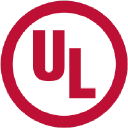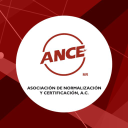EN IEC 61386-21:2021
(Main)Conduit systems for cable management - Part 21: Particular requirements - Rigid conduit systems
Conduit systems for cable management - Part 21: Particular requirements - Rigid conduit systems
Clause 1 of IEC 61386-1:2008 is applicable, except as follows: Addition: This part of IEC 61386 specifies the requirements for rigid conduit systems.
Elektroinstallationsrohrsysteme für die Kabel- und Leitungsverlegung - Teil 21: Besondere Anforderungen - Starre Elektroinstallationsrohrsysteme
Systèmes de conduits pour la gestion du câblage - Partie 21: Exigences particulières - Systèmes de conduits rigides
IEC 61386-21:2021 est disponible sous forme de IEC 61386-21:2021 RLV qui contient la Norme internationale et sa version Redline, illustrant les modifications du contenu technique depuis l'édition précédente.
Sistemi kanalov za električne inštalacije - 21. del: Posebne zahteve - Togi sistemi kanalov (IEC 61386-21:2021)
General Information
- Status
- Published
- Publication Date
- 22-Jul-2021
- Technical Committee
- CLC/TC 213 - Cable management systems
- Drafting Committee
- IEC/SC 23A - IEC_SC_23A
- Current Stage
- 6060 - Document made available - Publishing
- Start Date
- 23-Jul-2021
- Completion Date
- 23-Jul-2021
Relations
- Effective Date
- 26-Jan-2023
- Effective Date
- 23-Jan-2023
- Referred By
EN 1366-3:2021 - Fire resistance tests for service installations - Part 3: Penetration seals - Effective Date
- 09-Feb-2026
- Referred By
EN 1366-3:2009 - Fire resistance tests for service installations - Part 3: Penetration seals - Effective Date
- 09-Feb-2026
- Referred By
EN 1366-3:2021+A1:2024 - Fire resistance tests for service installations - Part 3: Penetration seals - Effective Date
- 09-Feb-2026
- Effective Date
- 03-Feb-2026
- Effective Date
- 26-May-2020
Overview
EN IEC 61386-21:2021 (CLC) - "Conduit systems for cable management - Part 21: Particular requirements - Rigid conduit systems" is the European adoption of IEC 61386-21:2021. It is the 2nd edition (2021), superseding EN 61386-21:2004, and specifies requirements, tests and documentation rules that apply specifically to rigid conduit systems used for electrical cable routing and protection.
Key topics and technical requirements
- Scope and normative references: Supplements and modifies IEC 61386-1:2008 (and AMD1:2017); used in conjunction with the general part of the series.
- Classification: Defines applicable classifications for rigid conduits and notes specific national restrictions (some classes are not allowed in France).
- Marking & documentation:
- Continuous marking along the conduit at regular intervals - preferably every 1 m, never longer than 3 m; each length must be marked at least once.
- Manufacturer must document minimum inside diameter and system classification.
- Manufacturer must declare whether the conduit is bendable and supply bending instructions and aids where applicable.
- Dimensions & threads: Thread and outside diameter requirements reference IEC 60423; the standard contains tables for minimum thread lengths and maximum entry diameters / minimum entry lengths for conduit sizes up to 75 mm.
- Mechanical tests:
- Compression test rules include a requirement to apply a uniformly increasing force (test force divided by time) - Annex AA provides calculation guidance and tolerances.
- Bending tests for conduits declared as bendable (specific apparatus and procedures referenced for metallic, non‑metallic and composite conduits).
- Additional mechanical checks: impact, collapse, tensile strength (where declared).
- Other properties & tests: Clauses cover electrical, thermal, fire hazard, external influences and electromagnetic compatibility (EMC) requirements for rigid conduit systems.
- Annexes: Normative annexes for classification coding and material thickness determination; informative annex (AA) for force-increase calculations.
Applications and who uses this standard
- Manufacturers of rigid conduit systems - design, marking, test procedures and documentation for product compliance.
- Test laboratories and certification bodies - perform specified mechanical, electrical and fire tests and verify marking/documentation.
- Specifiers, consultants and procurement teams - ensure selected conduit systems meet regulatory and performance requirements for electrical installations.
- Installers and contractors - use manufacturer declarations and bending instructions to perform safe installation and routing of cables.
Related standards
- IEC 61386-1:2008 (Part 1 - General requirements) and IEC 61386-1:2008/AMD1:2017
- IEC 60423 (thread and gauge specifications)
- Other parts of the IEC 61386 series covering flexible conduits, fittings and system testing
Keywords: EN IEC 61386-21:2021, rigid conduit systems, conduit systems for cable management, marking requirements, bending test, compression test, IEC 61386, IEC 60423, cable protection.
Get Certified
Connect with accredited certification bodies for this standard

Intertek Testing Services NA Inc.
Intertek certification services in North America.

UL Solutions
Global safety science company with testing, inspection and certification.

ANCE
Mexican certification and testing association.
Sponsored listings
Frequently Asked Questions
EN IEC 61386-21:2021 is a standard published by CLC. Its full title is "Conduit systems for cable management - Part 21: Particular requirements - Rigid conduit systems". This standard covers: Clause 1 of IEC 61386-1:2008 is applicable, except as follows: Addition: This part of IEC 61386 specifies the requirements for rigid conduit systems.
Clause 1 of IEC 61386-1:2008 is applicable, except as follows: Addition: This part of IEC 61386 specifies the requirements for rigid conduit systems.
EN IEC 61386-21:2021 is classified under the following ICS (International Classification for Standards) categories: 29.120.10 - Conduits for electrical purposes. The ICS classification helps identify the subject area and facilitates finding related standards.
EN IEC 61386-21:2021 has the following relationships with other standards: It is inter standard links to EN 61386-21:2004/A11:2010, EN 61386-21:2004, EN 1366-3:2021, EN 1366-3:2009, EN 1366-3:2021+A1:2024, EN 50174-2:2009, EN IEC 61386-21:2021/A11:2021. Understanding these relationships helps ensure you are using the most current and applicable version of the standard.
EN IEC 61386-21:2021 is associated with the following European legislation: EU Directives/Regulations: 2014/35/EU; Standardization Mandates: M/511. When a standard is cited in the Official Journal of the European Union, products manufactured in conformity with it benefit from a presumption of conformity with the essential requirements of the corresponding EU directive or regulation.
EN IEC 61386-21:2021 is available in PDF format for immediate download after purchase. The document can be added to your cart and obtained through the secure checkout process. Digital delivery ensures instant access to the complete standard document.
Standards Content (Sample)
SLOVENSKI STANDARD
01-september-2021
Nadomešča:
SIST EN 61386-21:2004
SIST EN 61386-21:2004/A11:2011
Sistemi kanalov za električne inštalacije - 21. del: Posebne zahteve - Togi sistemi
kanalov (IEC 61386-21:2021)
Conduit systems for cable management - Part 21: Particular requirements - Rigid conduit
systems (IEC 61386-21:2021)
Elektroinstallationsrohrsysteme für die Kabel- und Leitungsverlegung - Teil 21:
Besondere Anforderungen für starre Elektroinstallationsrohrsysteme (IEC 61386-
21:2021)
Systèmes de conduits pour la gestion du câblage - Partie 21: Exigences particulières -
Systèmes de conduits rigides (IEC 61386-21:2021)
Ta slovenski standard je istoveten z: EN IEC 61386-21:2021
ICS:
29.120.10 Inštalacijske cevi za Conduits for electrical
električne namene purposes
2003-01.Slovenski inštitut za standardizacijo. Razmnoževanje celote ali delov tega standarda ni dovoljeno.
EUROPEAN STANDARD EN IEC 61386-21
NORME EUROPÉENNE
EUROPÄISCHE NORM
July 2021
ICS 29.120.10 Supersedes EN 61386-21:2004 and all of its
amendments and corrigenda (if any)
English Version
Conduit systems for cable management - Part 21: Particular
requirements - Rigid conduit systems
(IEC 61386-21:2021)
Systèmes de conduits pour la gestion du câblage – Elektroinstallationsrohrsysteme für die Kabel- und
Partie 21: Exigences particulières - Systèmes de conduits Leitungsverlegung - Teil 21: Besondere Anforderungen für
rigides starre Elektroinstallationsrohrsysteme
(IEC 61386-21:2021) (IEC 61386-21:2021)
This European Standard was approved by CENELEC on 2021-05-17. CENELEC members are bound to comply with the CEN/CENELEC
Internal Regulations which stipulate the conditions for giving this European Standard the status of a national standard without any alteration.
Up-to-date lists and bibliographical references concerning such national standards may be obtained on application to the CEN-CENELEC
Management Centre or to any CENELEC member.
This European Standard exists in three official versions (English, French, German). A version in any other language made by translation
under the responsibility of a CENELEC member into its own language and notified to the CEN-CENELEC Management Centre has the
same status as the official versions.
CENELEC members are the national electrotechnical committees of Austria, Belgium, Bulgaria, Croatia, Cyprus, the Czech Republic,
Denmark, Estonia, Finland, France, Germany, Greece, Hungary, Iceland, Ireland, Italy, Latvia, Lithuania, Luxembourg, Malta, the
Netherlands, Norway, Poland, Portugal, Republic of North Macedonia, Romania, Serbia, Slovakia, Slovenia, Spain, Sweden, Switzerland,
Turkey and the United Kingdom.
European Committee for Electrotechnical Standardization
Comité Européen de Normalisation Electrotechnique
Europäisches Komitee für Elektrotechnische Normung
CEN-CENELEC Management Centre: Rue de la Science 23, B-1040 Brussels
© 2021 CENELEC All rights of exploitation in any form and by any means reserved worldwide for CENELEC Members.
Ref. No. EN IEC 61386-21:2021 E
European foreword
The text of document 23A/950/FDIS, future edition 2 of IEC 61386-21, prepared by SC 23A "Cable
management systems" of IEC/TC 23 "Electrical accessories" was submitted to the IEC-CENELEC
parallel vote and approved by CENELEC as EN IEC 61386-21:2021.
The following dates are fixed:
• latest date by which the document has to be implemented at national (dop) 2022-05-17
level by publication of an identical national standard or by endorsement
• latest date by which the national standards conflicting with the (dow) 2024-05-17
document have to be withdrawn
This document supersedes EN 61386-21:2004 and all of its amendments and corrigenda (if any).
Attention is drawn to the possibility that some of the elements of this document may be the subject of
patent rights. CENELEC shall not be held responsible for identifying any or all such patent rights.
This document has been prepared under a mandate given to CENELEC by the European Commission
and the European Free Trade Association, and supports essential requirements of EU Directive(s).
For the relationship with EU Directive(s) see informative Annex ZZ, which is an integral part of
EN 61386-1:2008/A1:2019.
Endorsement notice
The text of the International Standard IEC 61386-21:2021 was approved by CENELEC as a European
Standard without any modification.
IEC 61386-21 ®
Edition 2.0 2021-04
INTERNATIONAL
STANDARD
Conduit systems for cable management –
Part 21: Particular requirements – Rigid conduit systems
INTERNATIONAL
ELECTROTECHNICAL
COMMISSION
ICS 29.120.10 ISBN 978-2-8322-9664-6
– 2 – IEC 61386-21:2021 © IEC 2021
CONTENTS
FOREWORD . 3
1 Scope . 5
2 Normative references . 5
3 Terms and definitions . 5
4 General requirements . 5
5 General conditions for tests . 5
6 Classification . 5
7 Marking and documentation . 5
8 Dimensions. 6
9 Construction . 7
10 Mechanical properties. 7
11 Electrical properties . 9
12 Thermal properties . 9
13 Fire hazard . 9
14 External influences . 9
15 Electromagnetic compatibility . 10
Annex A (normative) Classification coding for conduit systems . 14
Annex B (normative) Determination of material thickness . 14
Annex C (normative) Additional test requirements for conduit systems already
complying with IEC 61386-1:2008 . 14
Annex AA (informative) Calculation for minimum and maximum rate of increase of
force for 10.2.4 . 15
Figure 101 – Bending apparatus for metallic and composite conduits . 10
Figure 102 – Gauge for checking the minimum inside diameter of the conduit system
after impact, bending, collapse and resistance to heat tests . 11
Figure 103 – Bending apparatus for non-metallic and composite conduit . 12
Figure 104 – Arrangement for collapse test . 13
Figure AA.1 – Graph showing force against time for 750 N force. 15
Table 101 – Thread lengths . 6
Table 102 – Maximum entry diameter and minimum entry length details . 7
Table AA.1 – Minimum and maximum rate of increase of force for 10.2.4 . 16
IEC 61386-21:2021 © IEC 2021 – 3 –
INTERNATIONAL ELECTROTECHNICAL COMMISSION
____________
CONDUIT SYSTEMS FOR CABLE MANAGEMENT –
Part 21: Particular requirements – Rigid conduit systems
FOREWORD
1) The International Electrotechnical Commission (IEC) is a worldwide organization for standardization comprising
all national electrotechnical committees (IEC National Committees). The object of IEC is to promote
international co-operation on all questions concerning standardization in the electrical and electronic fields. To
this end and in addition to other activities, IEC publishes International Standards, Technical Specifications,
Technical Reports, Publicly Available Specifications (PAS) and Guides (hereafter referred to as “IEC
Publication(s)”). Their preparation is entrusted to technical committees; any IEC National Committee interested
in the subject dealt with may participate in this preparatory work. International, governmental and non-
governmental organizations liaising with the IEC also participate in this preparation. IEC collaborates closely
with the International Organization for Standardization (ISO) in accordance with conditions determined by
agreement between the two organizations.
2) The formal decisions or agreements of IEC on technical matters express, as nearly as possible, an international
consensus of opinion on the relevant subjects since each technical committee has representation from all
interested IEC National Committees.
3) IEC Publications have the form of recommendations for international use and are accepted by IEC National
Committees in that sense. While all reasonable efforts are made to ensure that the technical content of IEC
Publications is accurate, IEC cannot be held responsible for the way in which they are used or for any
misinterpretation by any end user.
4) In order to promote international uniformity, IEC National Committees undertake to apply IEC Publications
transparently to the maximum extent possible in their national and regional publications. Any divergence
between any IEC Publication and the corresponding national or regional publication shall be clearly indicated in
the latter.
5) IEC itself does not provide any attestation of conformity. Independent certification bodies provide conformity
assessment services and, in some areas, access to IEC marks of conformity. IEC is not responsible for any
services carried out by independent certification bodies.
6) All users should ensure that they have the latest edition of this publication.
7) No liability shall attach to IEC or its directors, employees, servants or agents including individual experts and
members of its technical committees and IEC National Committees for any personal injury, property damage or
other damage of any nature whatsoever, whether direct or indirect, or for costs (including legal fees) and
expenses arising out of the publication, use of, or reliance upon, this IEC Publication or any other IEC
Publications.
8) Attention is drawn to the Normative references cited in this publication. Use of the referenced publications is
indispensable for the correct application of this publication.
9) Attention is drawn to the possibility that some of the elements of this IEC Publication may be the subject of
patent rights. IEC shall not be held responsible for identifying any or all such patent rights.
International Standard IEC 61386-21 has been prepared by subcommittee 23A: Cable
management systems, of IEC technical committee 23: Electrical accessories:
This second edition cancels and replaces the first edition published in 2002. This edition
constitutes a technical revision.
This edition includes the following significant technical changes with respect to the previous
edition:
a) Subclause 7.1.103 has been added requiring the manufacturer to declare whether the
conduit is bendable;
b) Annex AA has been added to provide guidance on the application of a constantly
increasing force.
– 4 – IEC 61386-21:2021 © IEC 2021
The text of this International Standard is based on the following documents:
FDIS Report on voting
23A/950/FDIS 23A/955/RVD
Full information on the voting for the approval of this International Standard can be found in
the report on voting indicated in the above table.
This document has been drafted in accordance with the ISO/IEC Directives, Part 2.
A list of all the parts in the IEC 61386 series, published under the general title Conduit
systems for cable management, can be found on the IEC website.
This document is to be used in conjunction with IEC 61386-1:2008 and
IEC 61386-1:2008/AMD1:2017.
This document supplements or modifies the corresponding clauses of IEC 61386-1:2008 and
IEC 61386-1:2008/AMD1:2017. Where a particular clause or subclause of IEC 61386-1:2008
and IEC 61386-1:2008/AMD1:2017 is not mentioned in this document, that clause or
subclause applies as far as is reasonable. Where this document states "addition",
"modification" or "replacement", the relevant text of IEC 61386-1:2008 and
IEC 61386-1:2008/AMD1:2017 is to be adapted accordingly.
Subclauses
...




Questions, Comments and Discussion
Ask us and Technical Secretary will try to provide an answer. You can facilitate discussion about the standard in here.
Loading comments...